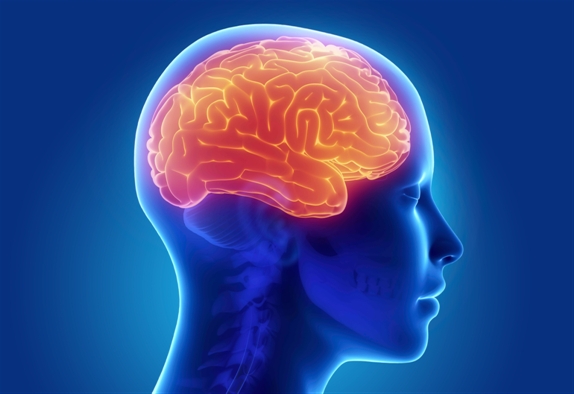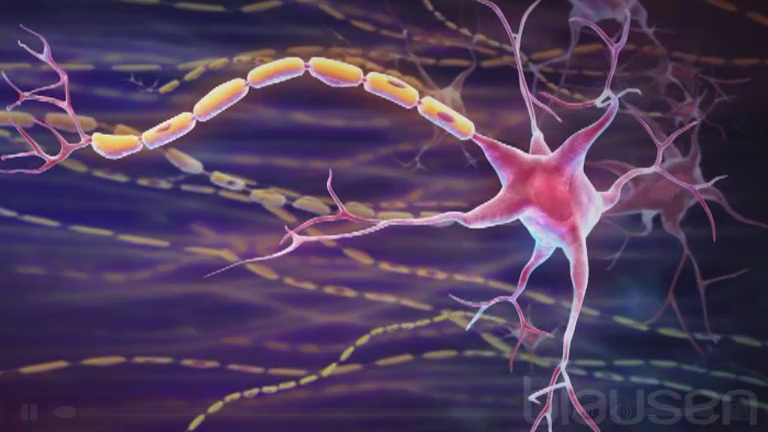 |
Physiological PsychologySpring 2019
Professor:Dr. Linda M. Woolf |  |
 |
Physiological PsychologySpring 2019
Professor:Dr. Linda M. Woolf |  |
Office Hours:
- 318 Interdisciplinary Science Building
- Monday, Wednesday, and Friday, 10:00 - 11:00 p.m. or email through Canvas for an appointment.
- Phone 246-6970 or 246-7062
- woolflm@webster.edu
- Woolf Web Page: http://faculty.webster.edu/woolflm/
Texts:
- Pinel, J. P. J. (2017). Biopsychology (10th ed.). Boston: Pearson. ISBN-13: 978-0134203690
Catalog Description
Examines the physiological concomitants of behavior and acquaints the student with the methods and major findings of the interaction that has recently taken place between biology and psychology.Expanded Course Description:
What is schizophrenia? How can we treat depression? What can we do to help those with Alzheimer's? Can we cure insomnia? What is colorblindness? How do drugs like cocaine, heroine, and alcohol impact the brain? How does stress and anxiety influence the body and behavior? These are all questions that can be addressed from the physiological psychology perspective. In fact, most any question we have about human behavior can be addressed at the biological level. As a result, the impact of the physiological perspective on psychology has been enormous. To really understand psychology, one has to understand the workings of the brain. In the course, we will explore the physiological correlates of behavior, more specifically the brain-behavior relationship. First, we will discuss the basic concepts of neuroanatomy, neurophysiology, neurochemistry, and neurotransmission. Secondly, we will use this information to examine the relationship of neural function/control of sensory and motor systems, motivated behavior (feeding, sex, aggression, and sleep), learning, memory, and psychopathology. The format of the course will be lecture, discussion, and film.
"The last frontier in this world --- and perhaps the greatest one --- lies within us. The human nervous system makes possible all that we can do, all that we can know, and all that we can experience. Its complexity is immense, and the task of studying it and understanding it dwarfs all previous explorations our species has undertaken." – Neil R. Carlson, Physiology of BehaviorUpon the successful completion of this course, students will be able to:
- Describe the basic facts, concepts and research methods in physiological psychology.
- Discuss the physiological mechanisms underlying a variety of behaviors and psychological processes (schizophrenia, autism, depression, emotion, vision, movement, etc.) as they are currently understood by physiological psychologists.
- Apply physiological psychology to help understand and solve every day problems.
Class Meetings:
The class will meet on Monday, Wednesday, and Friday from 11:00 - 11:50.
Attendance Policy: Attendance is strongly recommended as material will be presented that is not in the book and it is conceptually complex. In addition, class discussion will enhance your understanding of the material. Due to the importance of not only class attendance but also class participation, class participation constitutes a significant percentage of your final grade.Incoming Competency:
All students should have completed PSYC 1100, 12 hours of psychology, and should be capable of integrating and evaluating information, critical thinking, and writing at the 4000 level.
Course Requirements:
Six exams, a mock Monitor article, and a small group video project.All grades will be assigned on a scale of 0 - 100 with:
90 - 100 A-,A Superior Work 80 - 89 B-,B,B+ Good Work 70 - 79 C-,C,C+ Satisfactory Work 60 - 69 D,D+ Passing, but less than Satisfactory (not passing for the major) Less than 60 F Failing
Percent of Grade:
Examinations 75% Term Paper 15% Group Project 10% Prerequisites: PSYC 1100 and 12 credit hours of psychology; or permission of the instructor. Examinations: Examination format will include multiple choice, short answer, matching, labeling of diagrams, and essay. They will cover material presented in lecture, readings, video, and discussion. Six examinations will be given. Each exam will constitute 12.5% of your final grade.
POLICY STATEMENTS: All exams must be taken on the date scheduled except in case of an emergency. In case of the above, the instructor must be notified in advance that a test is going to be missed. No make-up exams will be provided if you fail to notify and discuss your situation with the instructor.Mock Monitor article: For this assignment, you will select at least five empirical articles (that have not already been assigned/discussed) and synthesize them into a coherent narrative that would be accessible to the general public. This assignment will require you to understand complex scientific concepts, accurately describe them in a digestible manner, and persuasively articulate why they matter—all of which are valuable and marketable skills no matter what kind of career you’re thinking of pursuing.
The paper is due April 27 and will take the form of a long form science journalism piece for the APA Monitor that not only summarizes relevant research, but also uses that research to make a point about society, broadly construed. Potential topics might include: How can we use findings on impulse control to understand the nature of addiction and, thus, inform effective drug policy? To what extent are psychopaths truly “incurable” and what implications might this belief have for the criminal justice system?) During the middle of the semester, you will submit short topic proposals in order to receive comments and suggestions before you begin to develop your ideas further. Your articles should be about 1500 words, not including references. Further instructions and links to similar articles are on Canvas. The article is worth 15% of your final grade.
All papers must be submitted electronically in Word (.doc or .docx) format to Canvas
All papers must be typed, double-spaced, have 1 inch margins and in APA format. If you are in doubt as to what this means, see me for details.
- Purchase or go to the library to view a copy of the APA 6th Edition Publication Manual
- Go to OWL Purdue Online Writing Lab
Group Video Project: Students, in groups of two or three, are to create a short YouTube video related to a physiological psychology applied topic (e.g., learning, brain disorder, food intake, physiology of a mental disorder, etc.). Ask yourself, what short video would you have like to have seen to explain a concept. You will be graded on formatting, content, and quality of presentation. Further instructions are on Canvas. All videos will be presented during the week before final exams. The video will be worth 10% of your final grade.
Policy Statements:
Use of Electronic Devices in the Classroom: Please respect others in the class by turning off all cell phones before entering the room. Text messaging during class is not acceptable. Laptops may be used in class but are only to be utilized for class related activities (e.g., taking notes). If it becomes apparent you are using the computer for non-class activities (e.g., checking your email, Facebook, playing games) then you may be asked to turn off your computer and refrain from bringing it into class in the future. Laptop use is restricted to the back or sides of the classroom so that other students are not distracted during lecture. Please be aware that according to research published in Psychological Science has demonstrated that taking hand-written notes leads to better processing of information and higher exam scores!Plagiarism (attempting to pass off the work of another as one's own) is not acceptable. Plagiarism includes copying all or part of another's writings (even a single sentence), inappropriate paraphrasing, using another student's paper as your own, submitting a paper for more than one class. All papers will be submitted to the university's plagiarism database for review. Plagiarism, either intentional or unintentional, will result in a grade of 0 for that assignment but also may be turned over to the appropriate university source for disciplinary action and a grade of F for the course. In addition, cheating on exams will also result in the same fate.
Here are some Web sites that will help you avoid the problem of plagiarism particularly plagiarism resulting from paraphrasing too closely to the original source. -
- Establishing Authorship by Paul C. Smith, Alverno College
- How to Avoid Plagiarism Tutorial
- Webster University Plagiarism Page
- The University of Indiana's Online Plagiarism Tutorial - You can print out a certificate of completion!
It should be noted that, as is common in many university courses, little time will be spent lecturing on topics adequately addressed by the text. Students are expected to arrive at class meetings having already read the material assigned, and to ask questions to clarify any areas that remain unclear. While every attempt will be made to explain or expand upon particularly difficult areas, the primary purpose of classroom lecture is to enhance, rather than to duplicate, the textbook material.
Students with disabilities who believe that they may need accommodations in this class are encouraged to contact me or the Director of the Academic Resource Center, as soon as possible to ensure that such accommodations can be implemented in a timely fashion.
Late withdraws from this class will not be approved by the instructor except in cases of emergency discussed with the instructor. No late withdraws will be approved on the basis of poor class performance.
This syllabus is subject to change at the instructor's discretion. All changes concerning course requirements will be provided in writing. Changes concerning exam dates may be made at the instructor's discretion and communicated verbally to the class.
It is understood that remaining in this course (not dropping or withdrawing from this course) constitutes an agreement to abide by the terms outlined in this syllabus and an acceptance of the requirements outlined in this document. No grade of Incomplete will be issued for this course.
Course Outline
The schedule below provides a general guideline to the semester and is flexible based on any need for additional discussion of a particular topic. Week Ending Topic and Readings January 18 Introduction to the class
Biopsychology as a Neuroscience
Readings:
- Chapter 1
January 25 Anatomy of the Nervous System
Readings:
- Chapters 3
February 1 Anatomy of the Nervous System continued Exam I, Friday February 1, Chpaters 1 & 3
Readings:
- Chapter 3
February 8 Neural Conduction and Synaptic Transmission
Readings:
- Chapter 4
February 15 Neural Conduction and Synaptic Transmission continued
Research Methods
Readings:
- Chapter 4 & 5
vk February 22 Exam II, Monday Feb. 18; Chapters 4-5 The Visual System
Readings:
- Chapter 6
March 1 Vision continued
Exam III, Monday March 4; Chapter 6
Readings:
- Chapter 6
March 8 Brain Damage and Neuroplasticity
Readings:
- Chapter 10
March 22 Learning, Memory, and Amnesia Exam IV, Friday March 22; Chapters 10-11
Readings:
- Chapters 11
March 29 Hunger, Eating, and Health
Readings:
- Chapter 12
April 5 Sleep, Dreaming, and Circadian Rhythms
Readings:
- Chapter 14
April 12 Drug Use, Drug Addiction, and the Brain's Reward Circuits Exam V, Friday April 12; Chapters 12, 14-15
Readings:
- Chapter 15
April 19 Biopsychology of Emotions, Stress, and Health
Readings:
- Chapter 17
April 26 Biopsychology of Psychiatric Disorders Readings:
- Chapter 18
May 3 Class Video Presentations
See Final Exam Schedule Exam VI; Chapters 16-17
To Linda M. Woolf's Web page